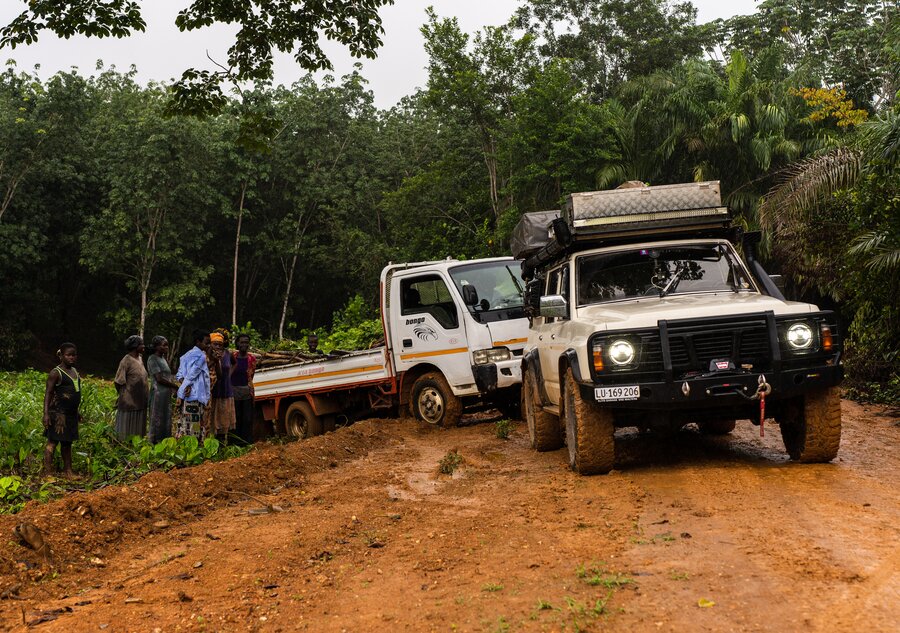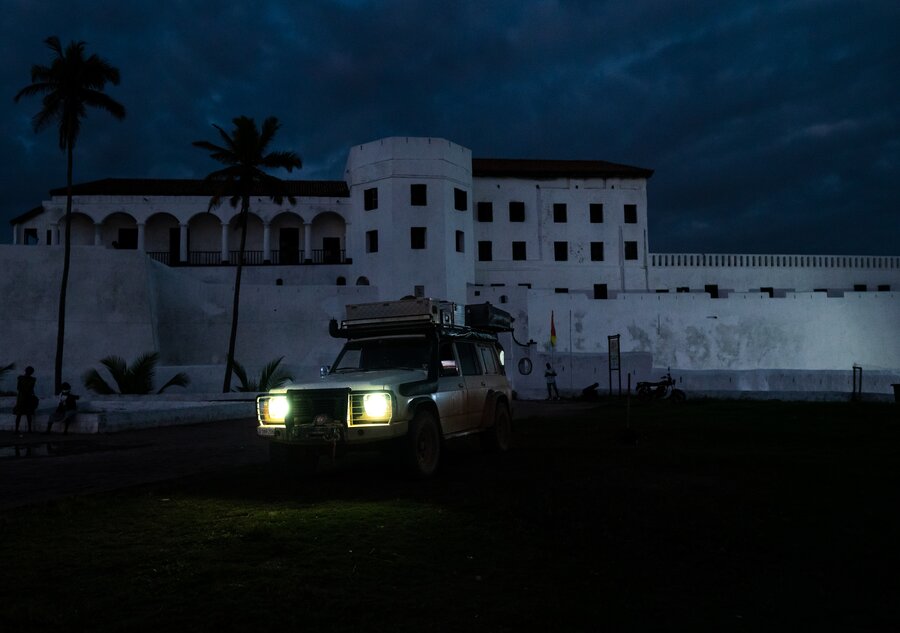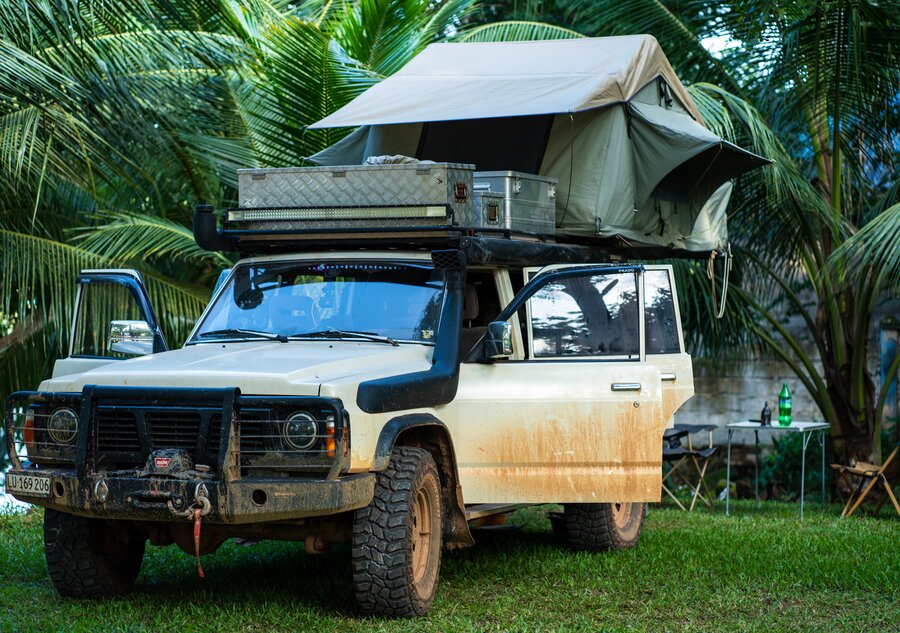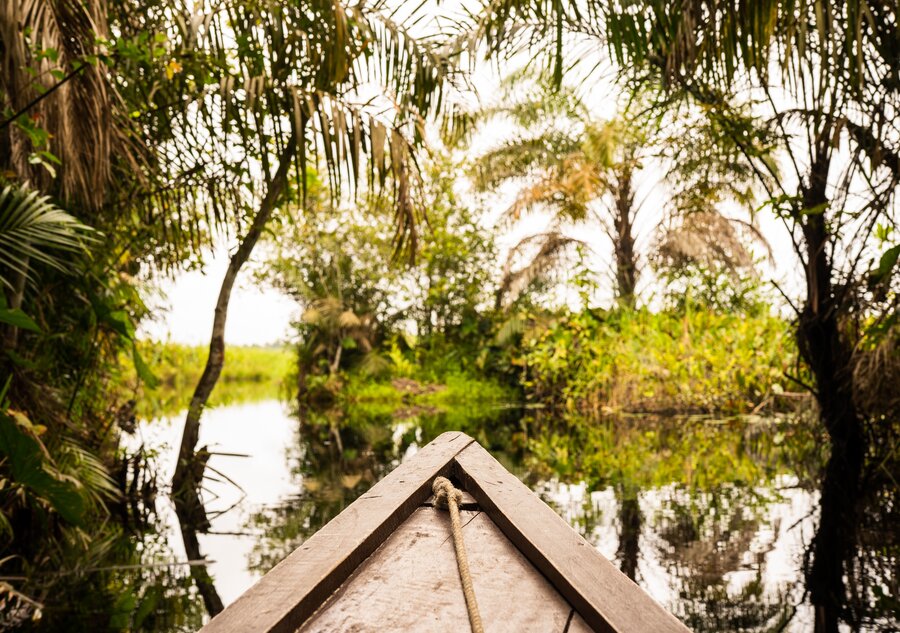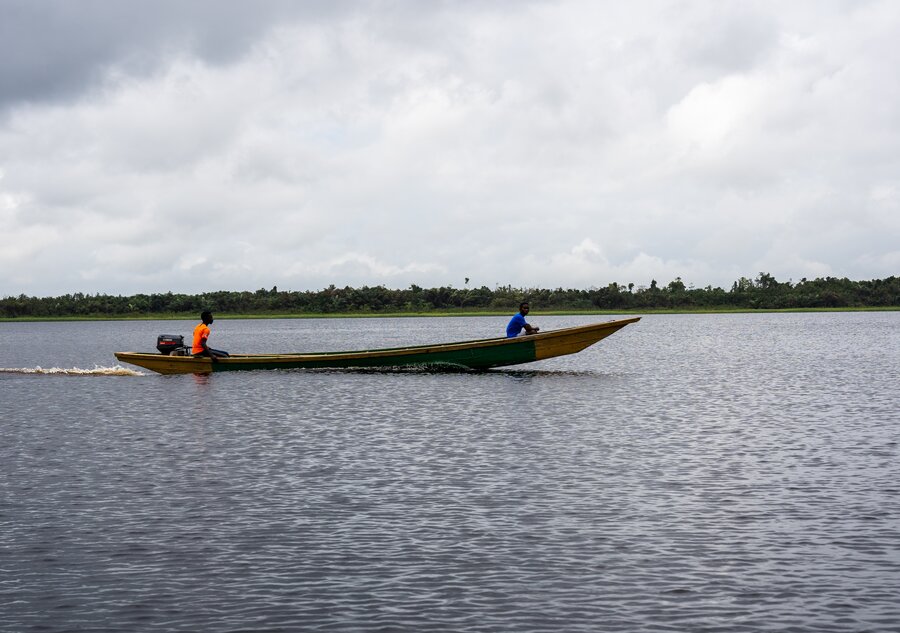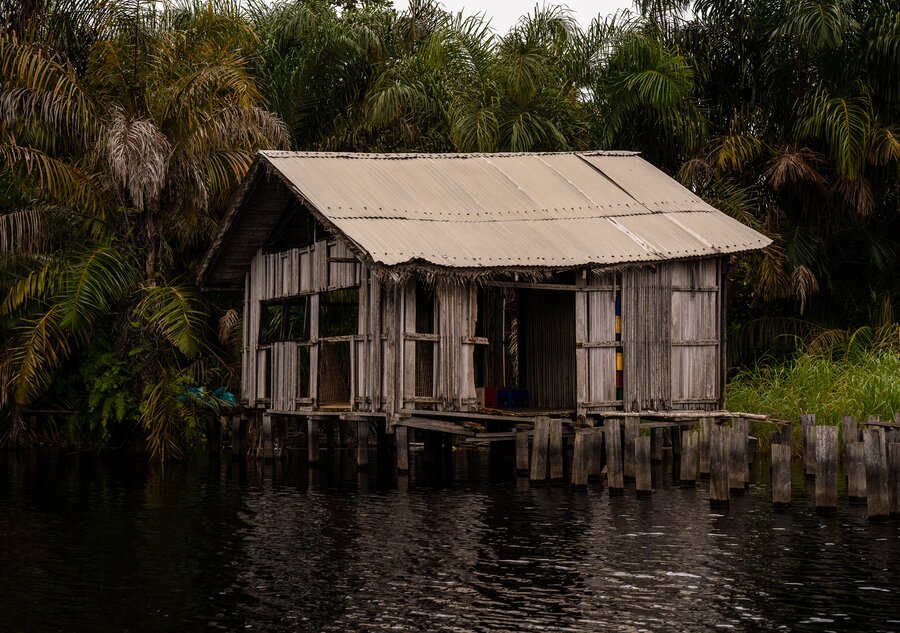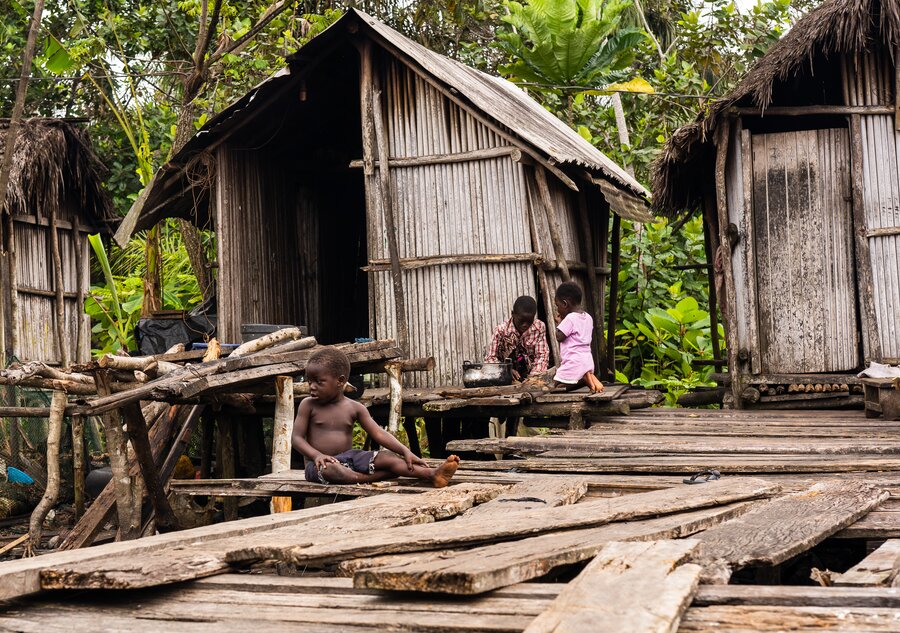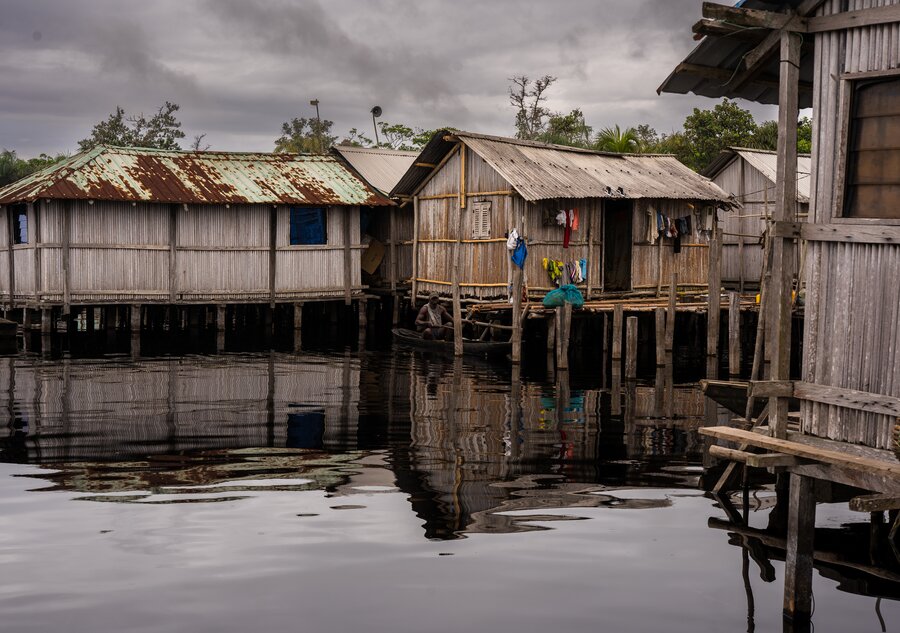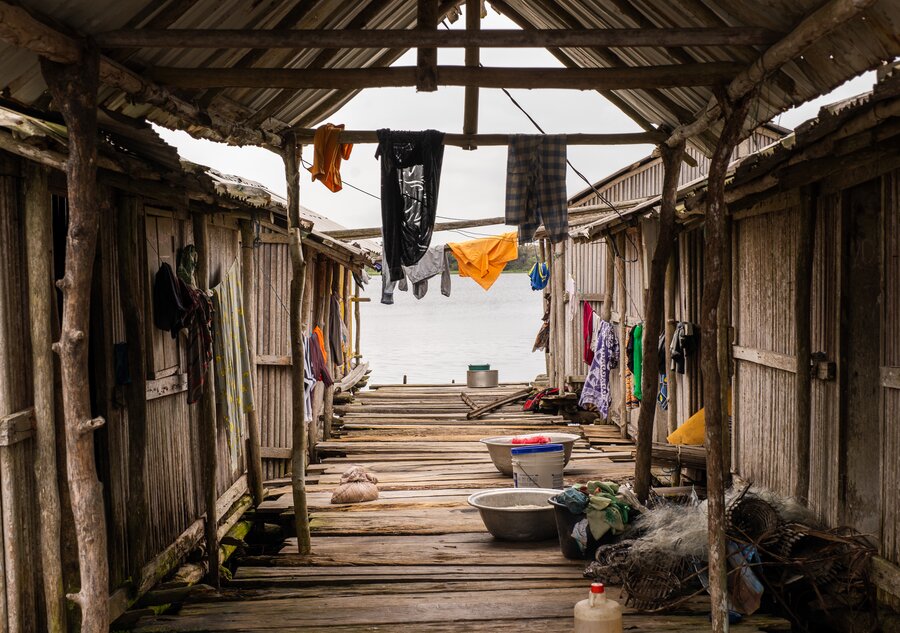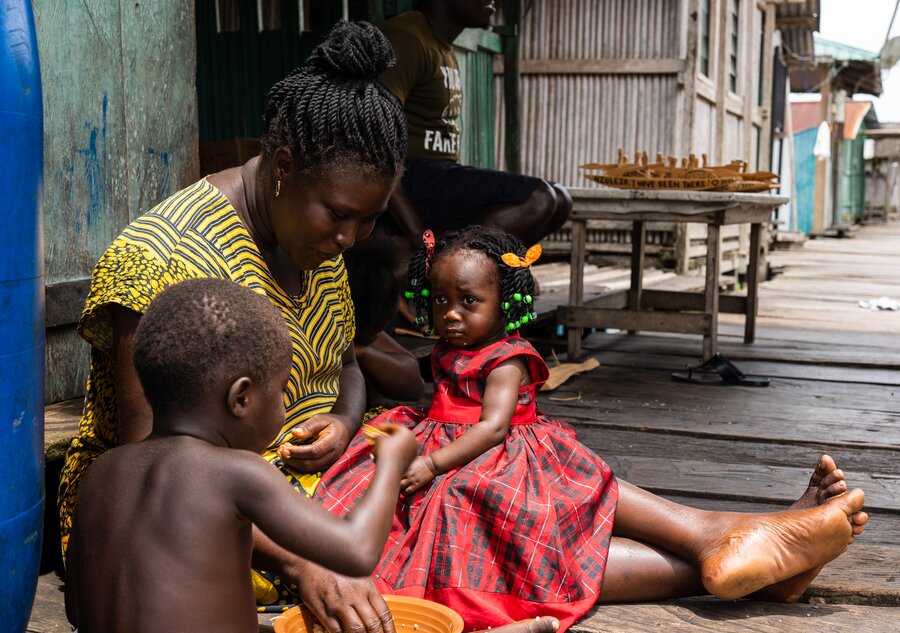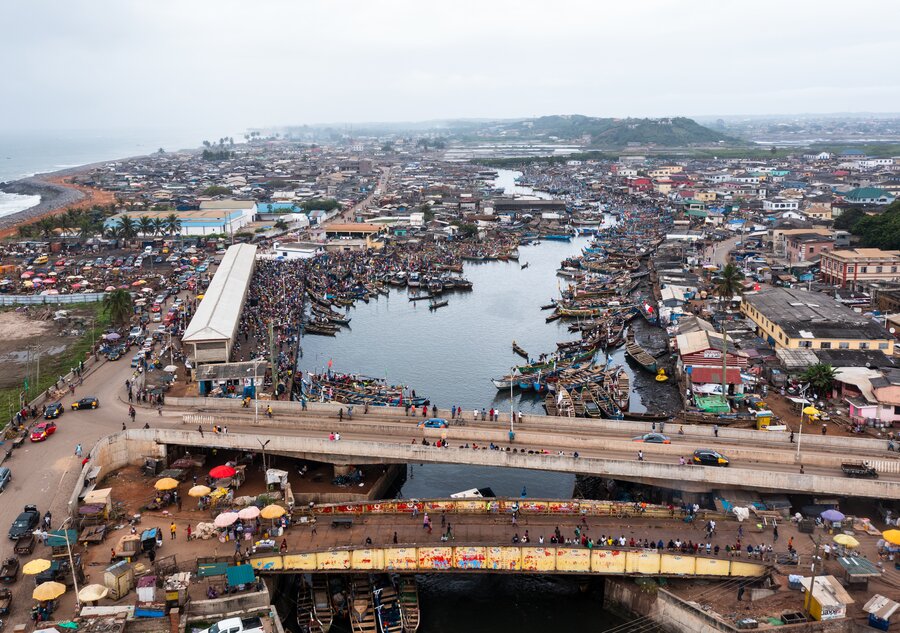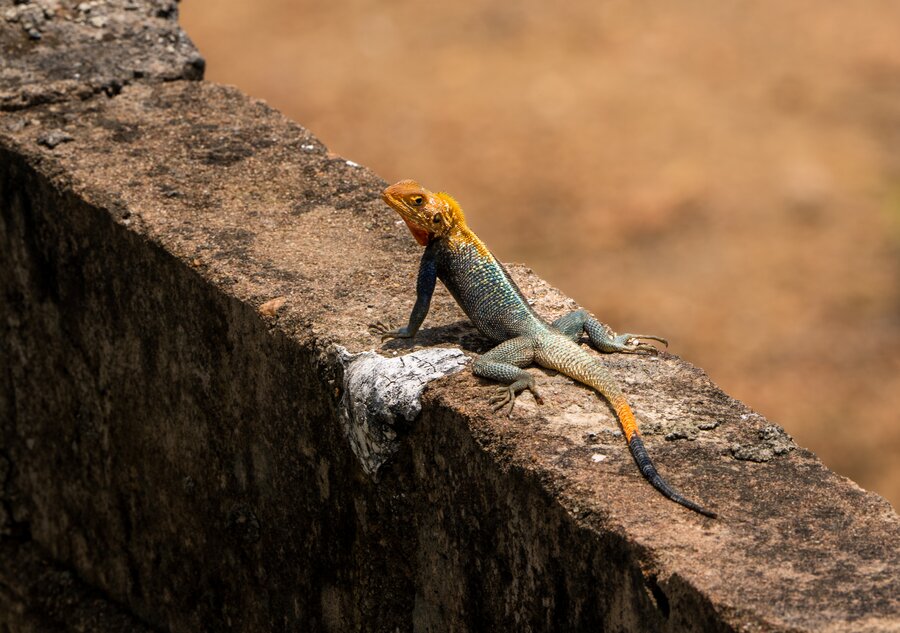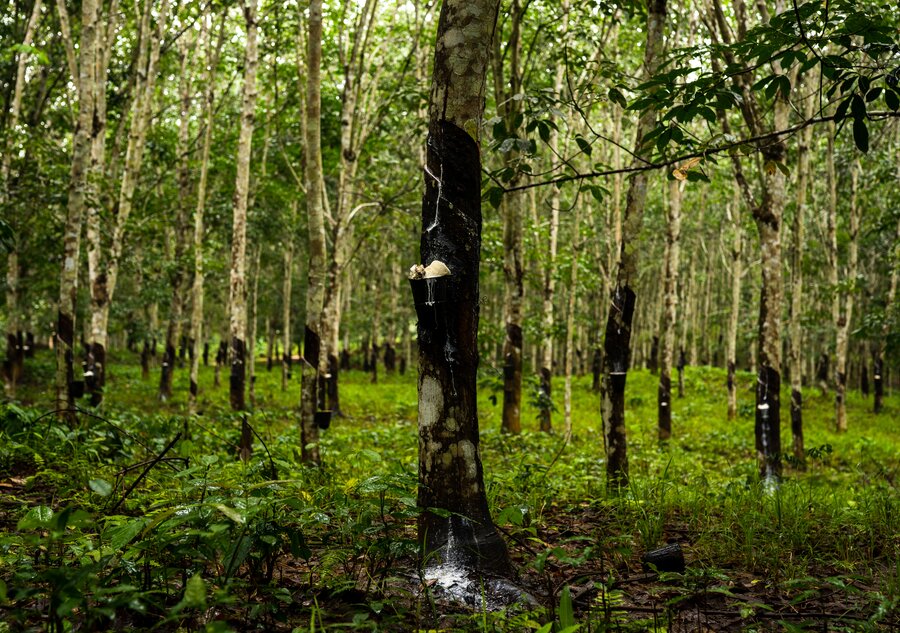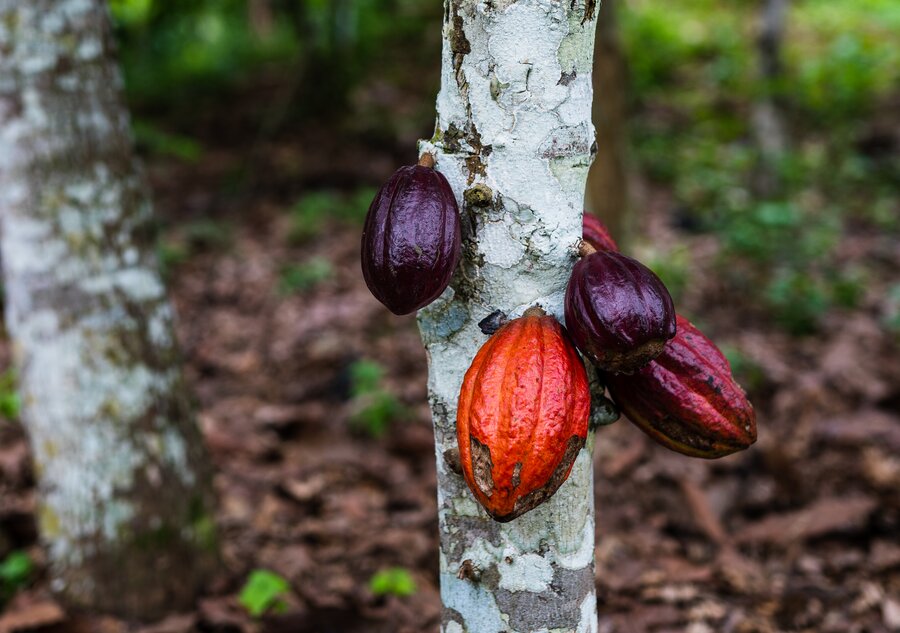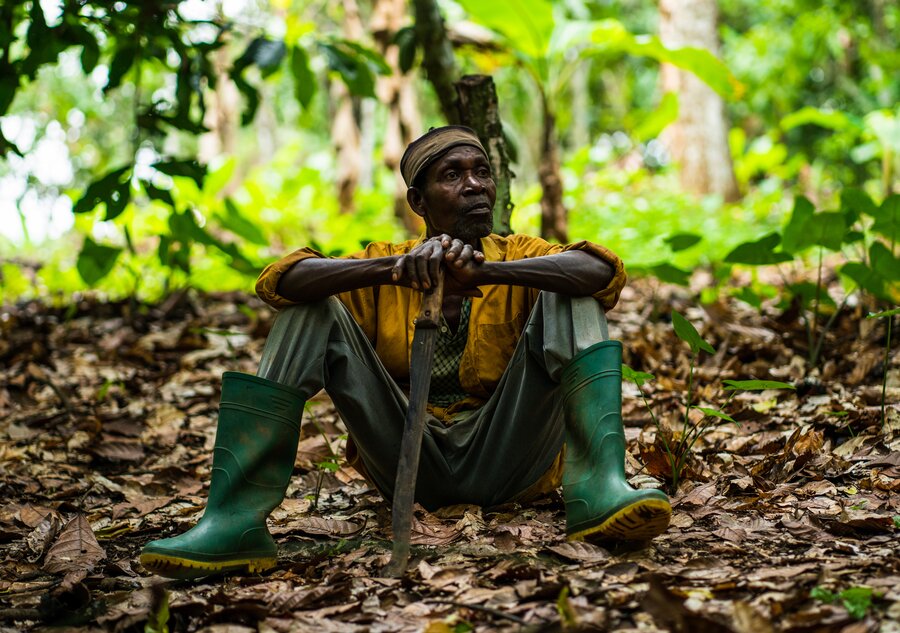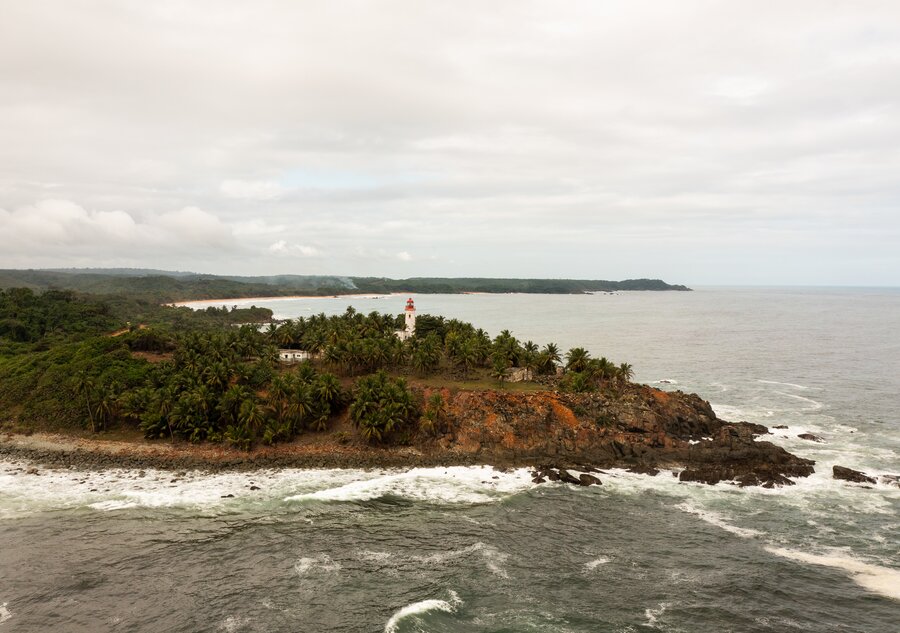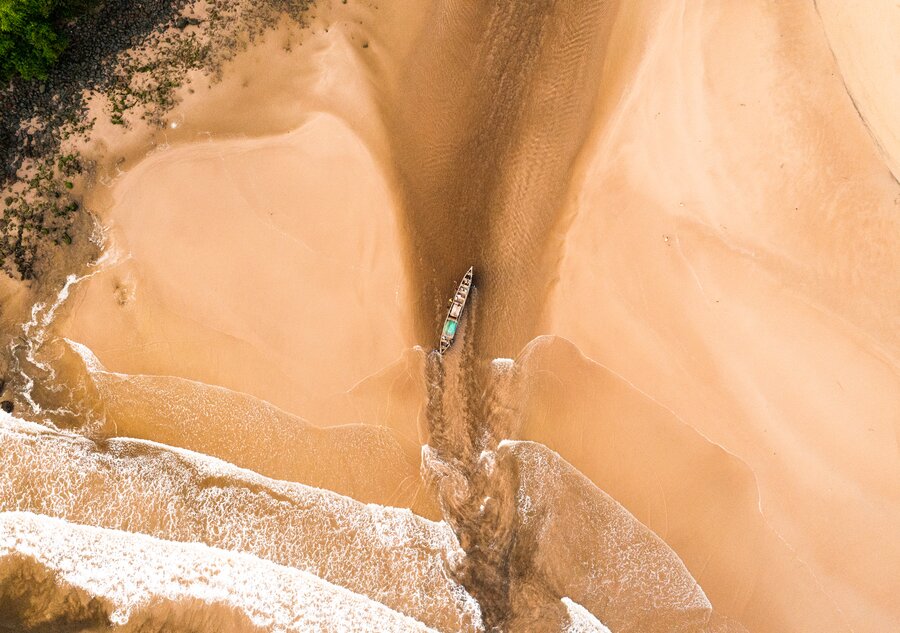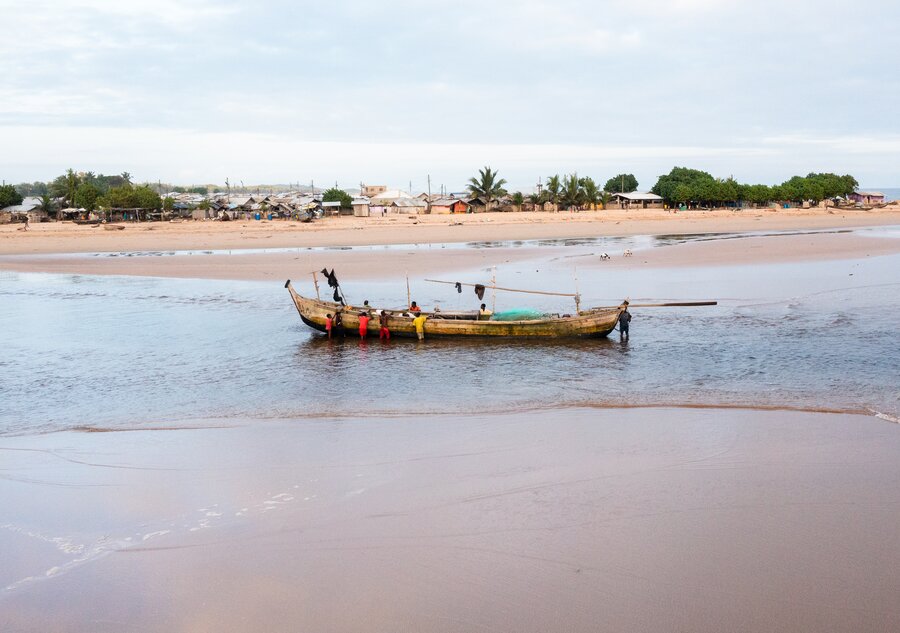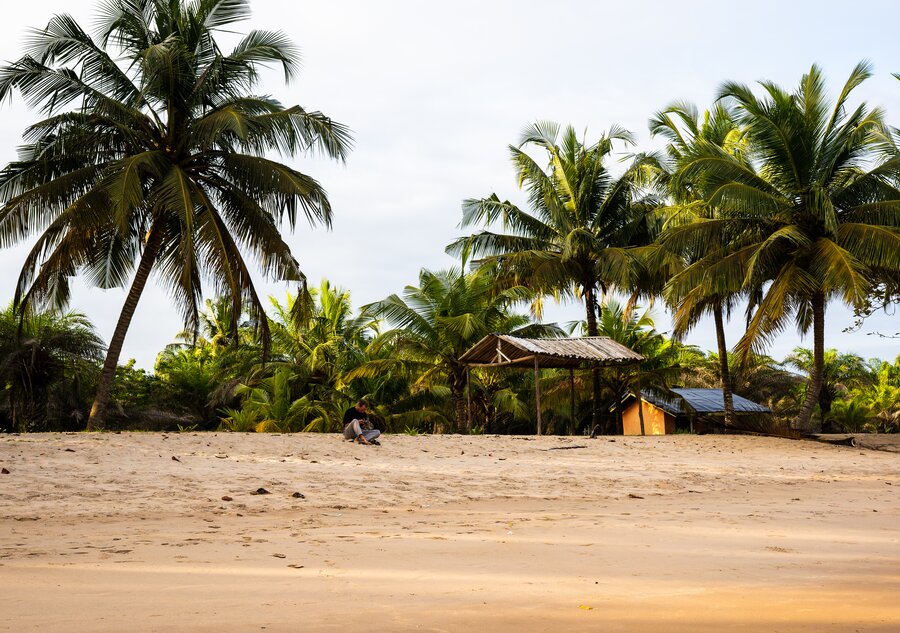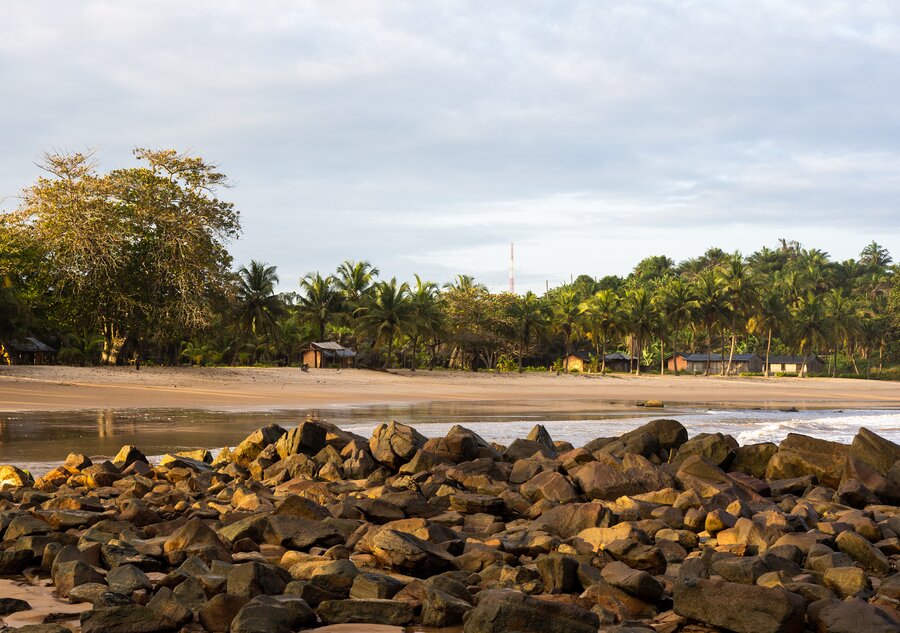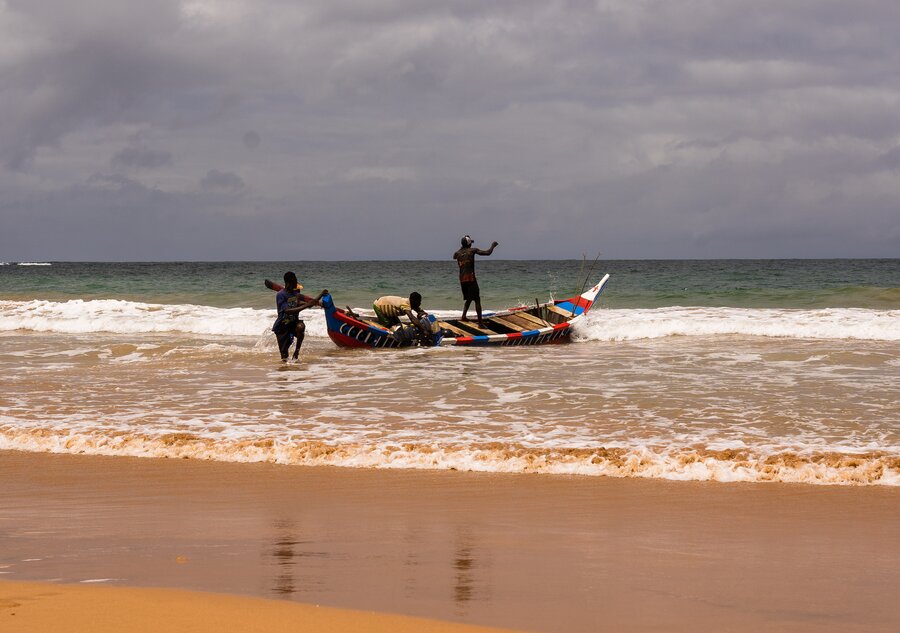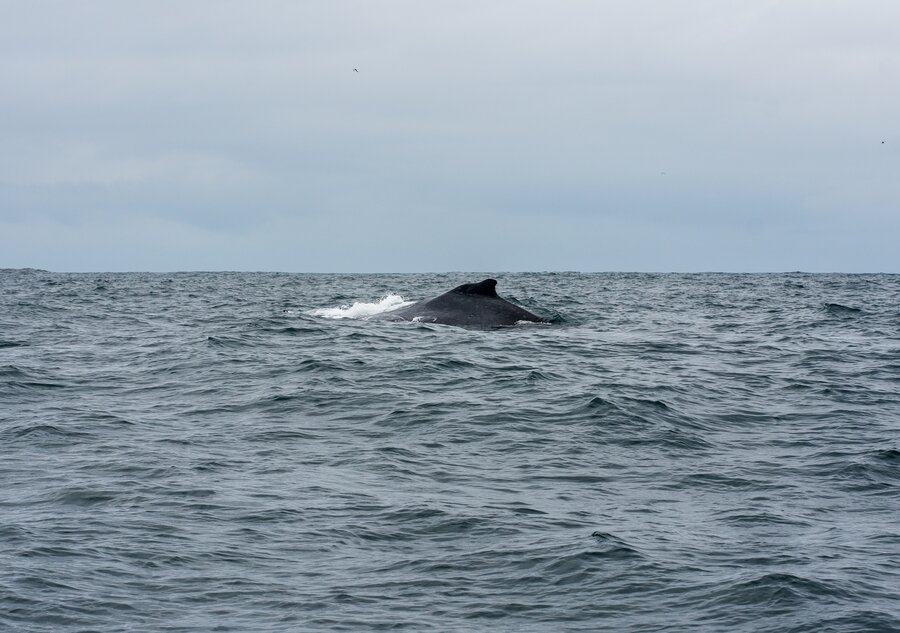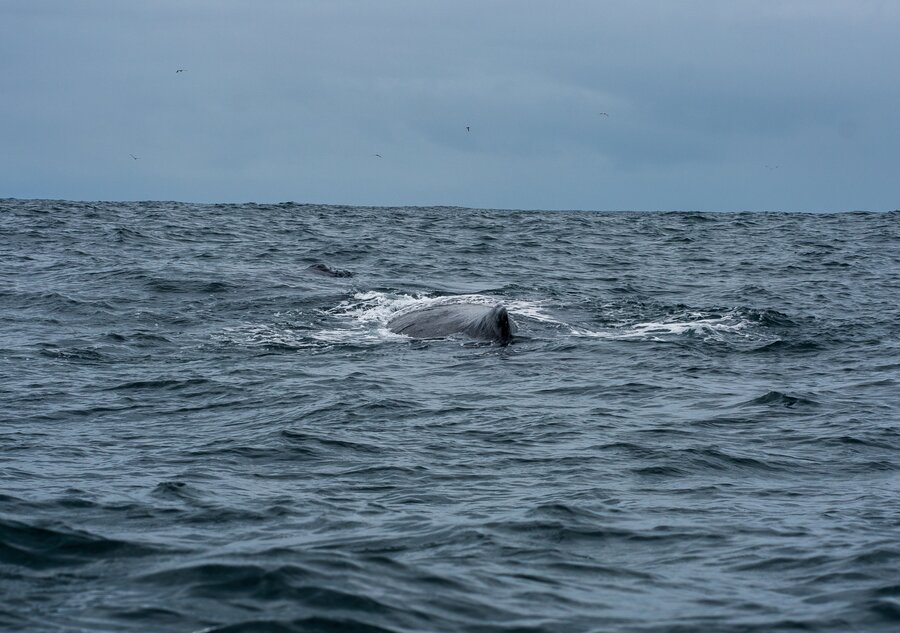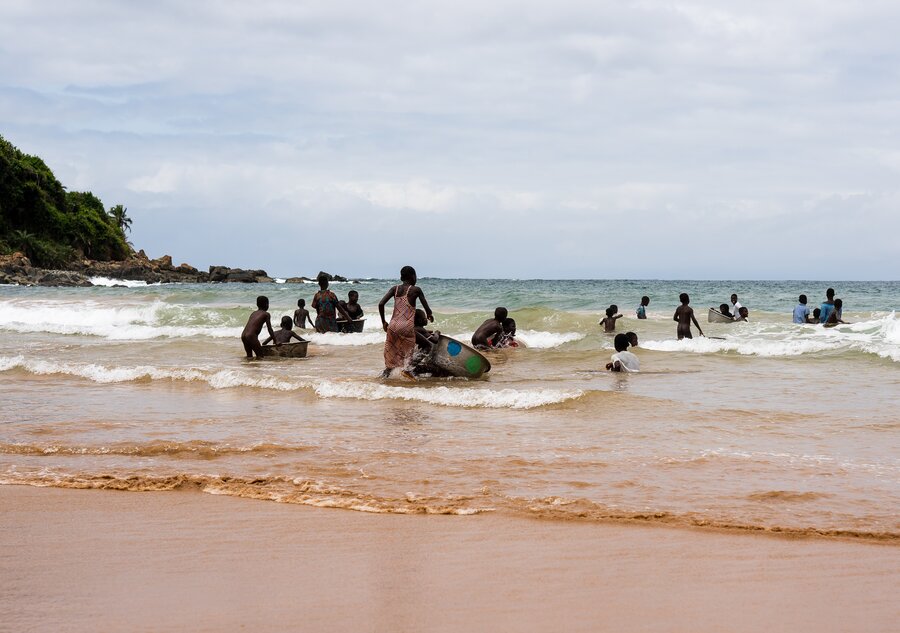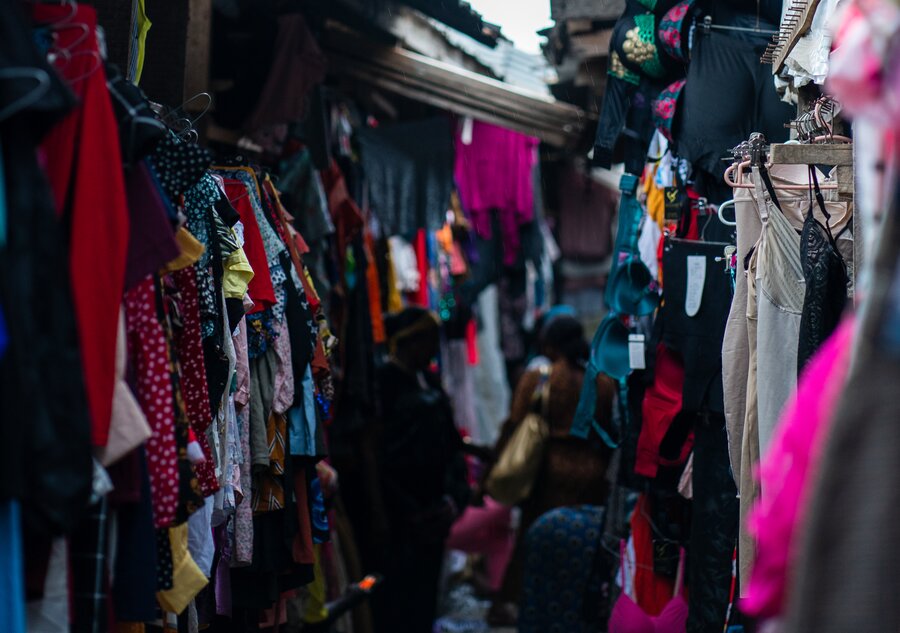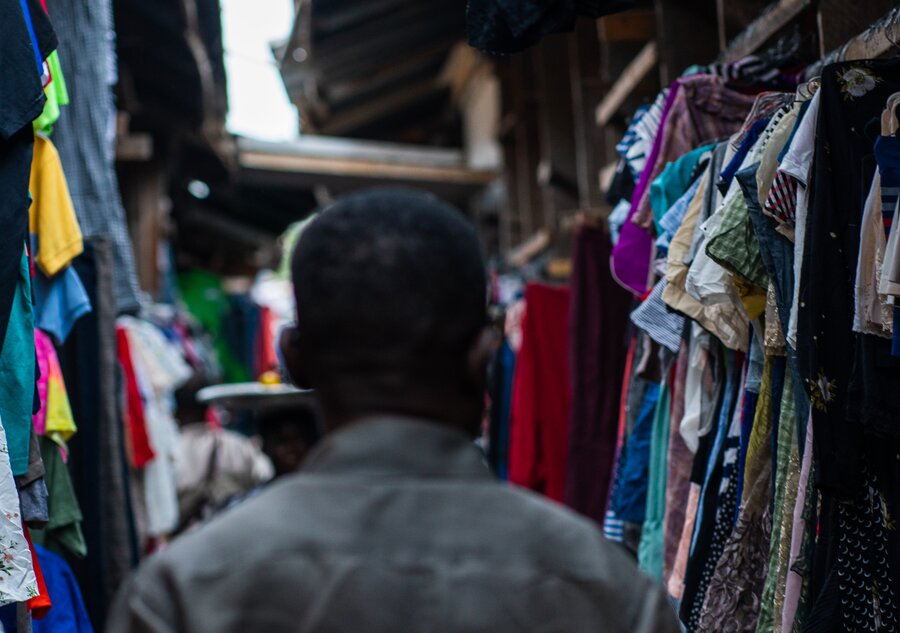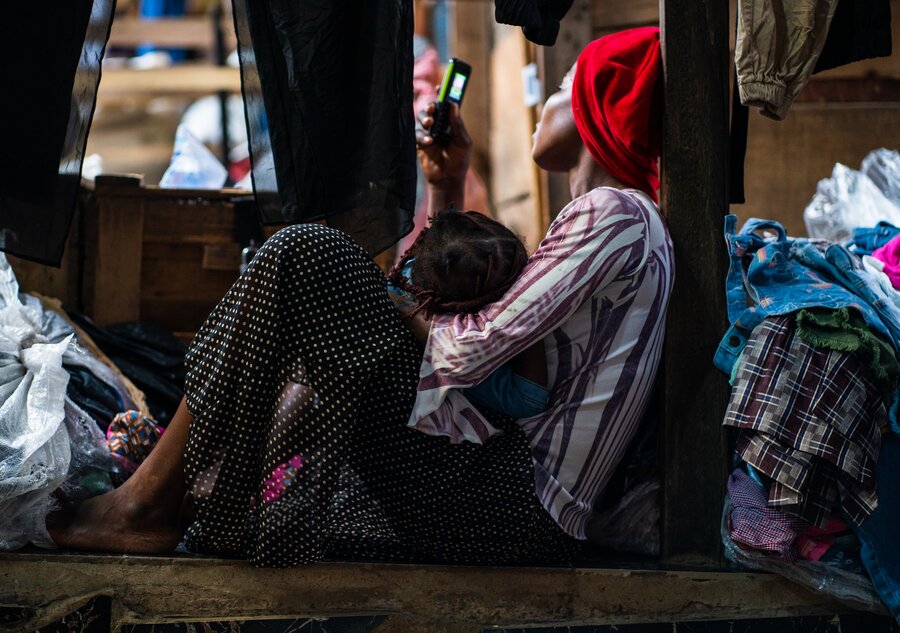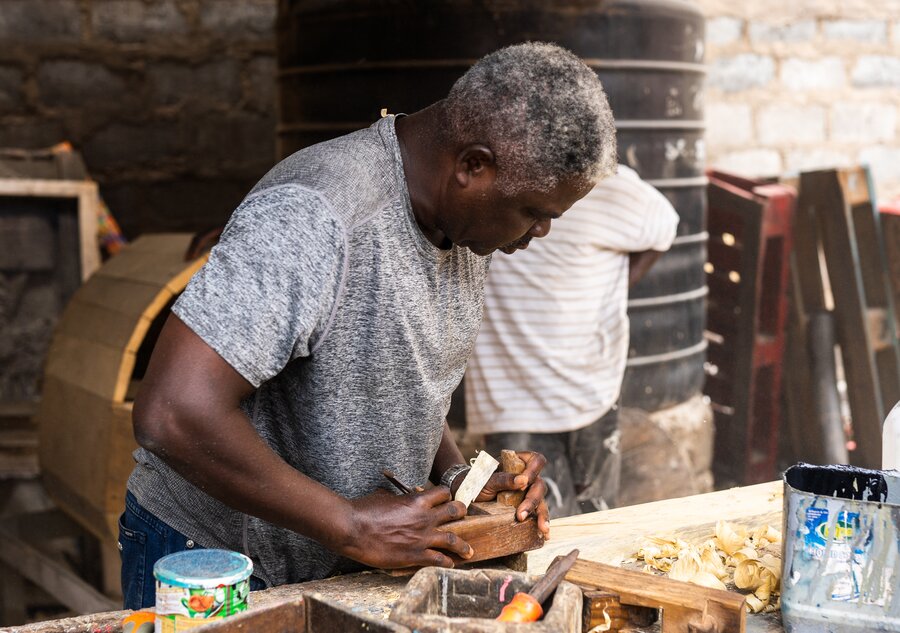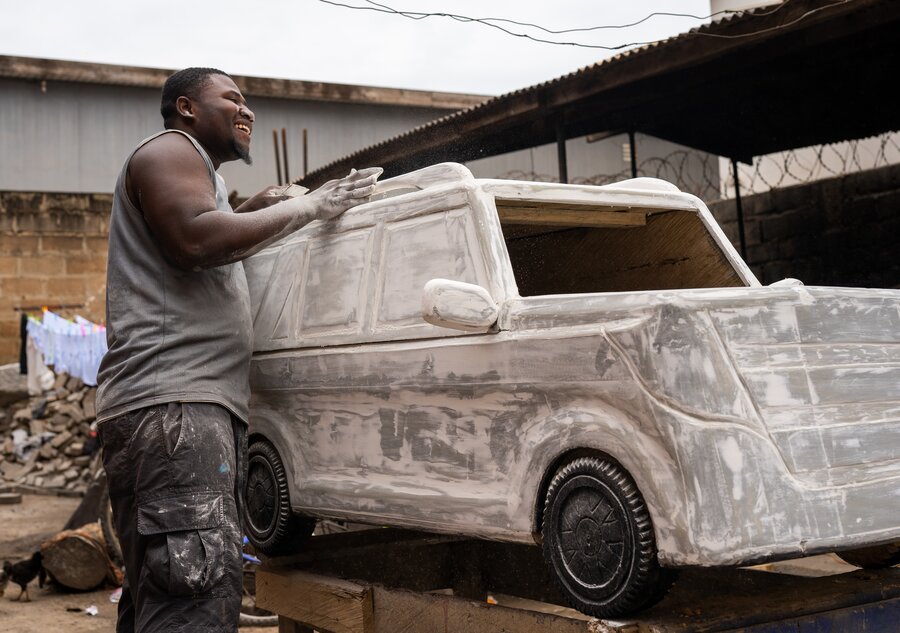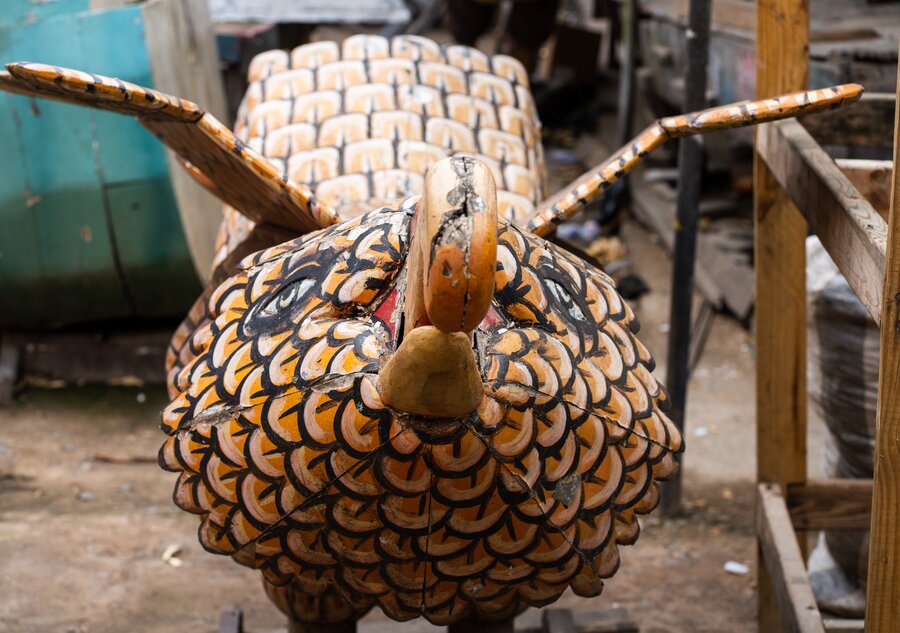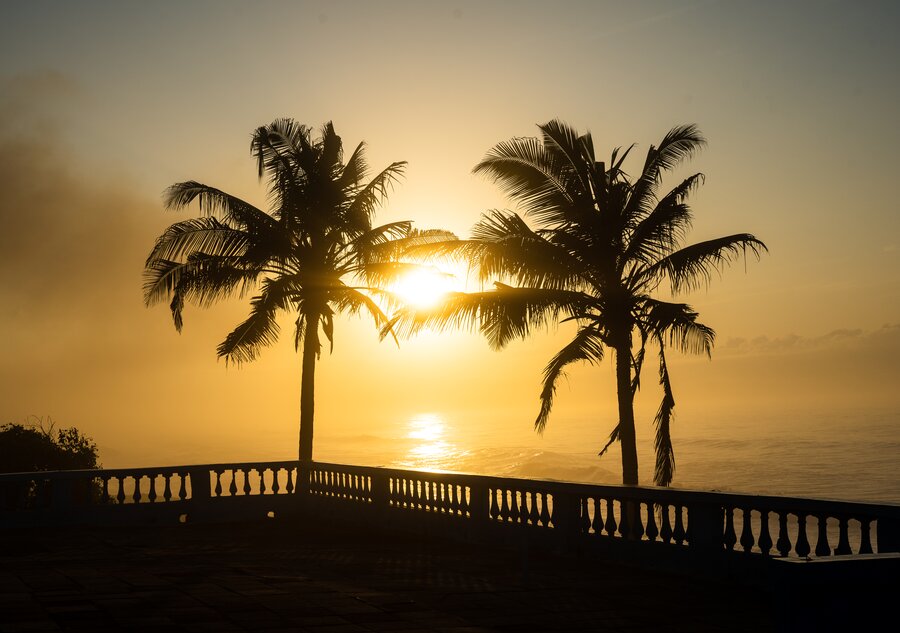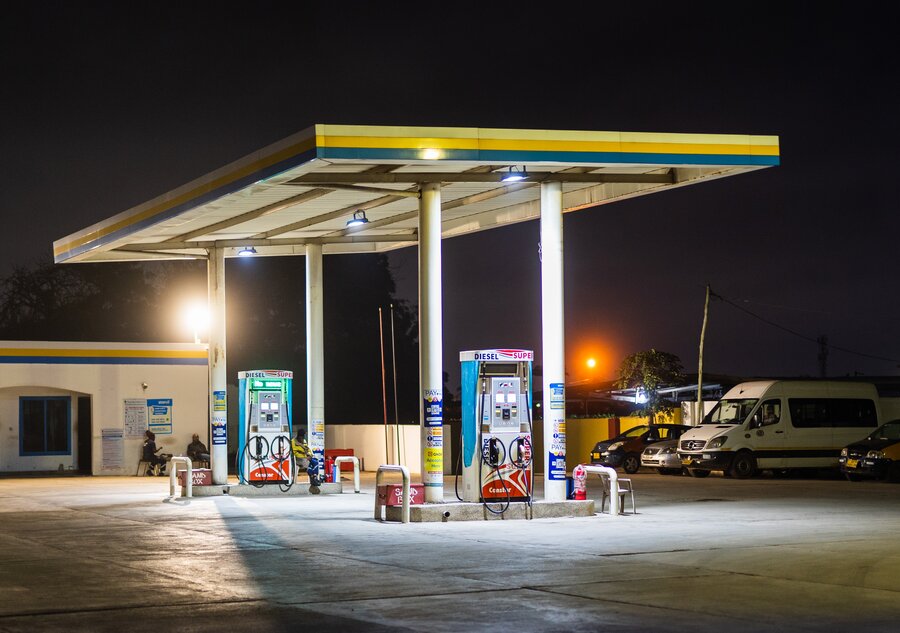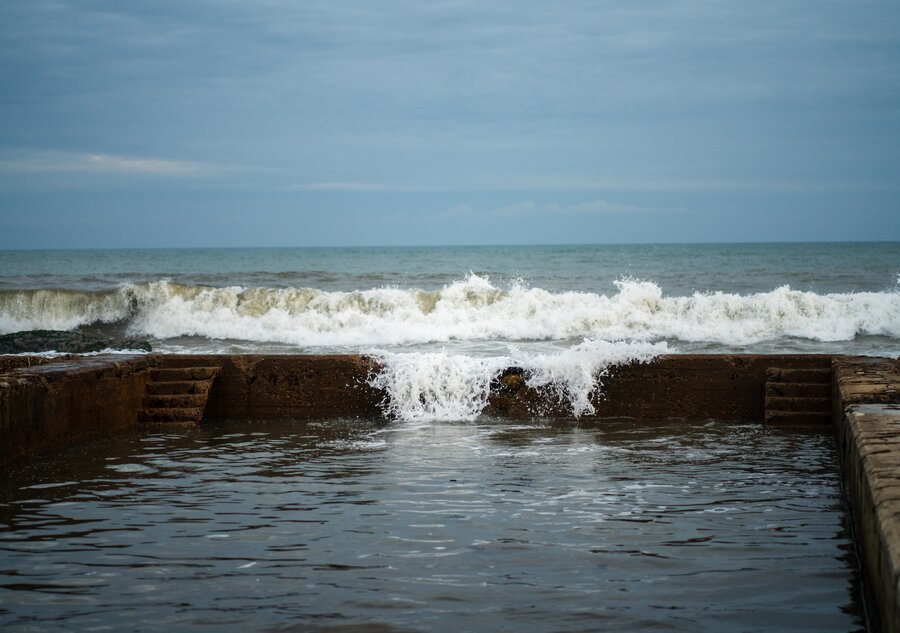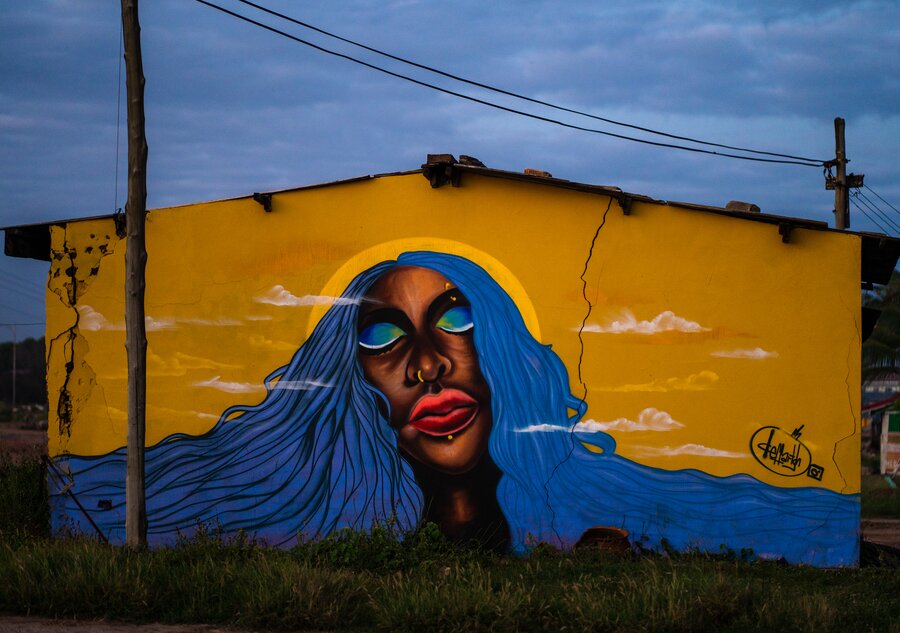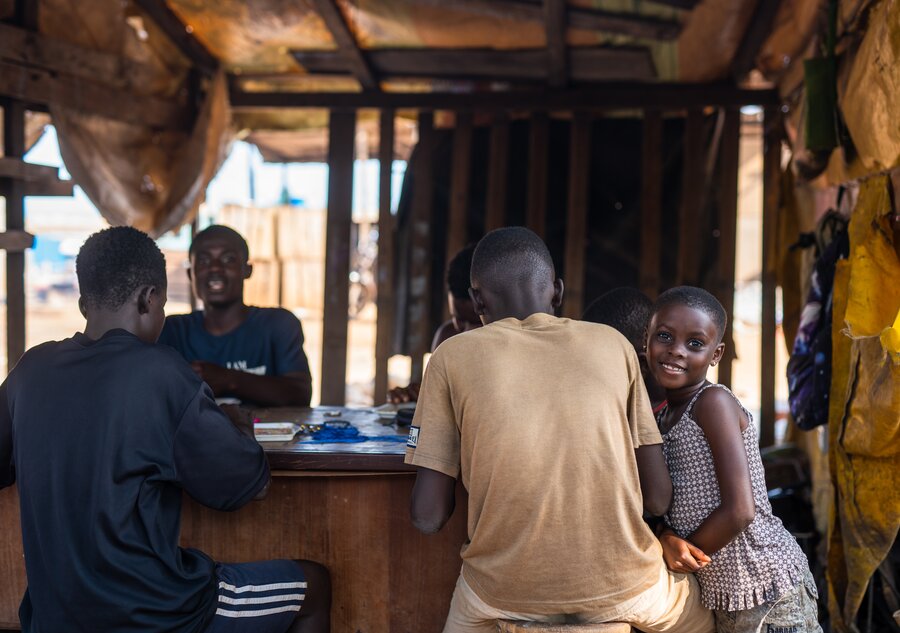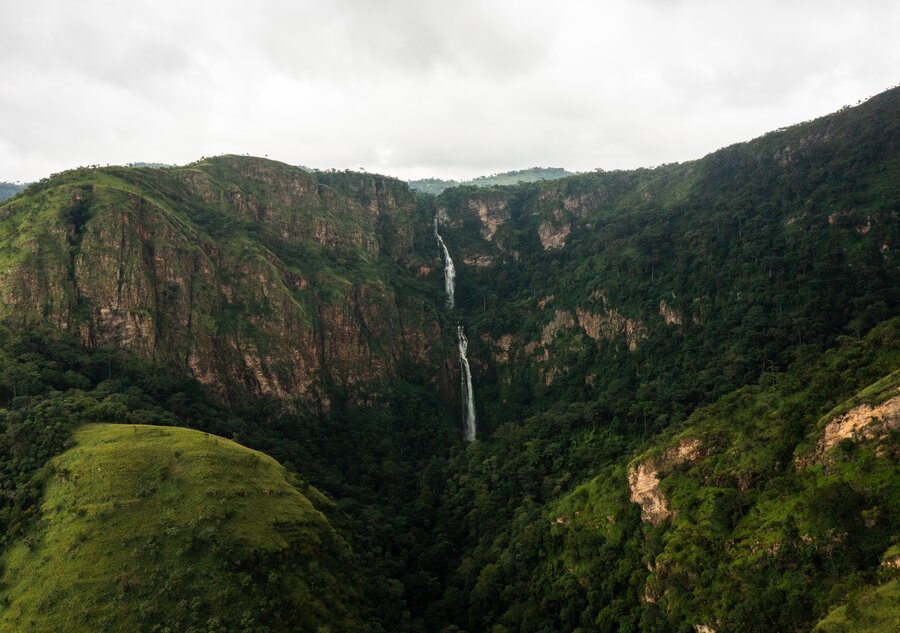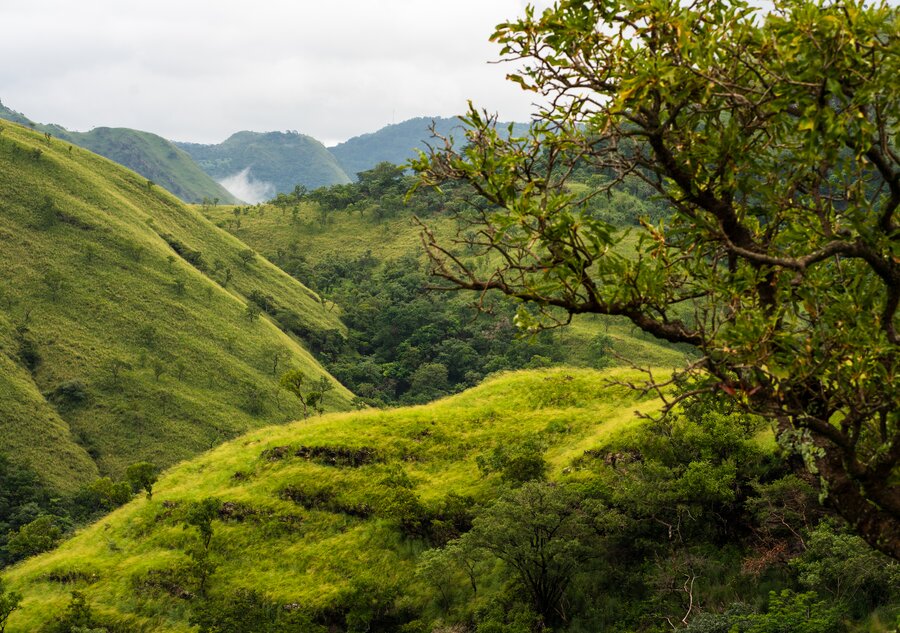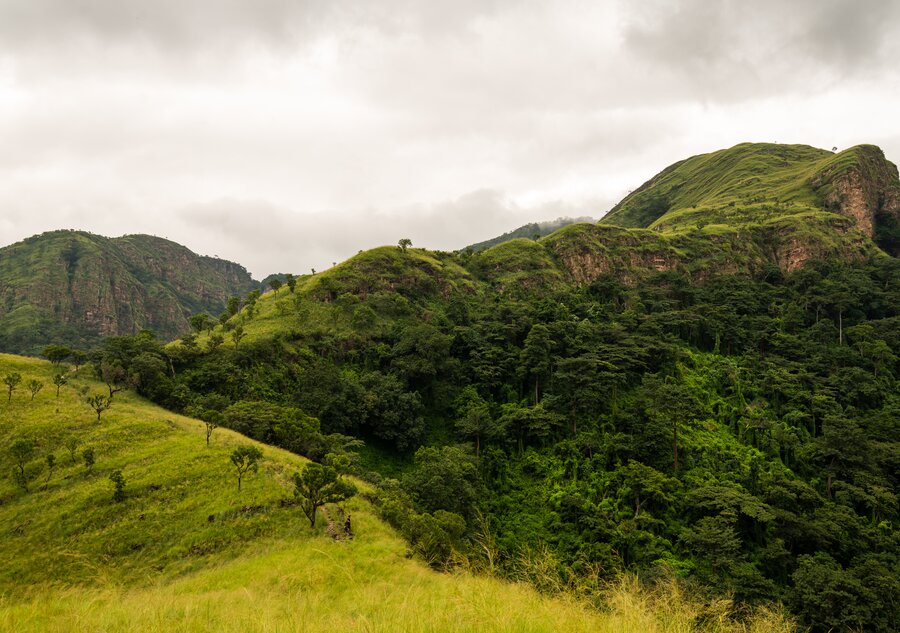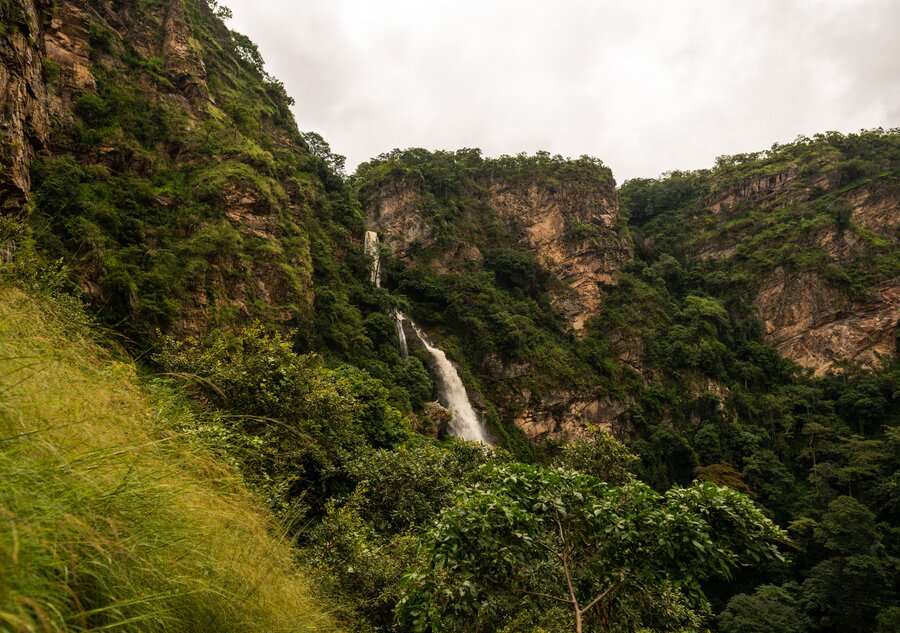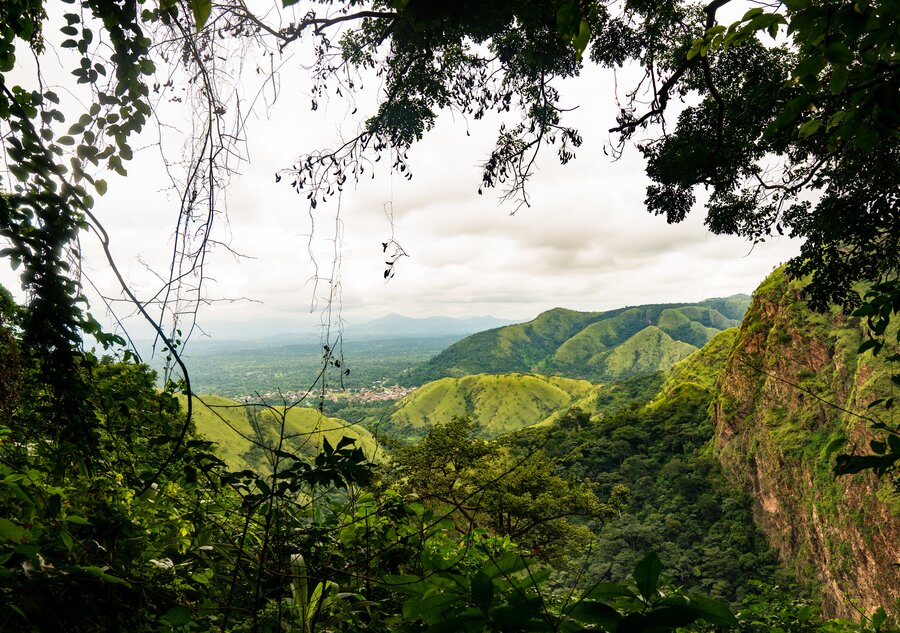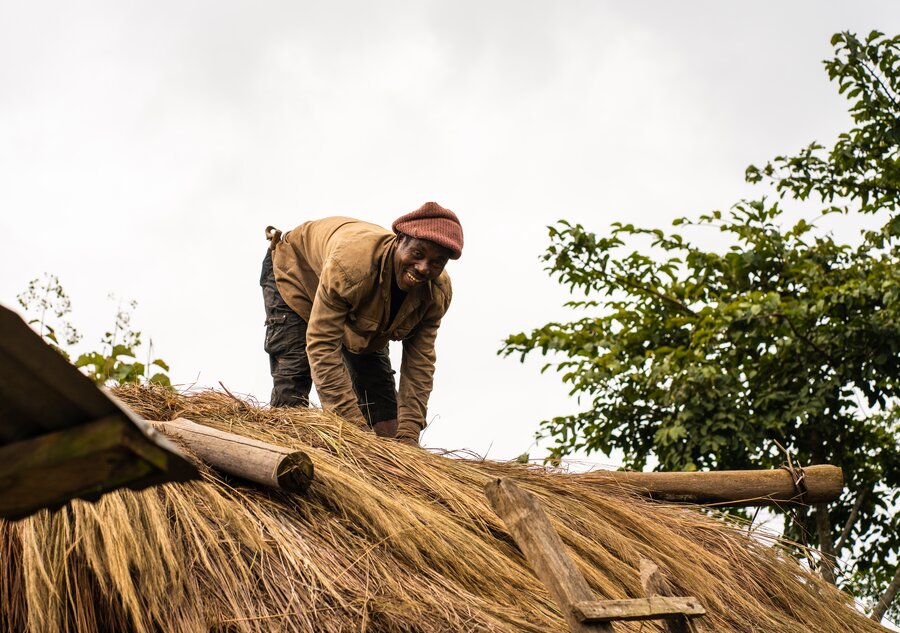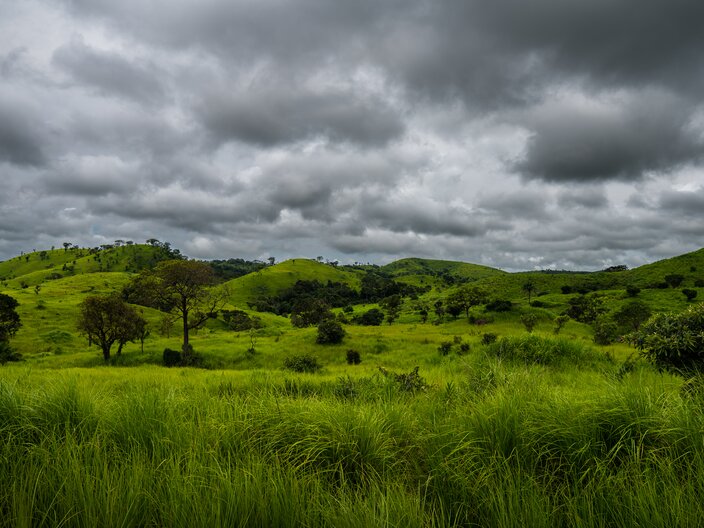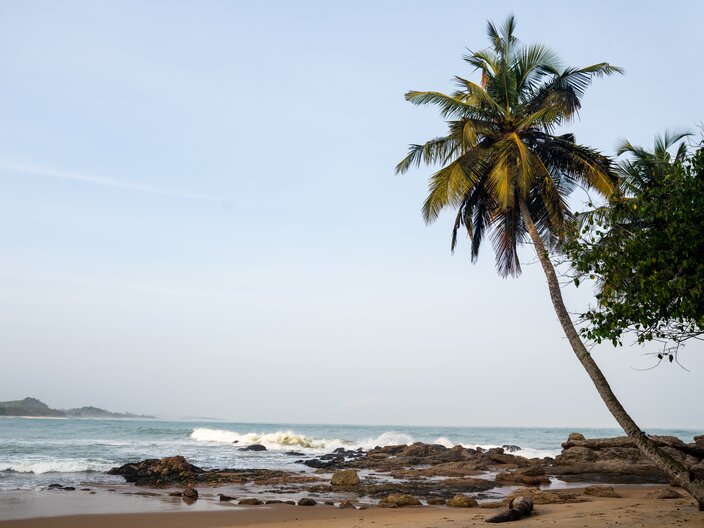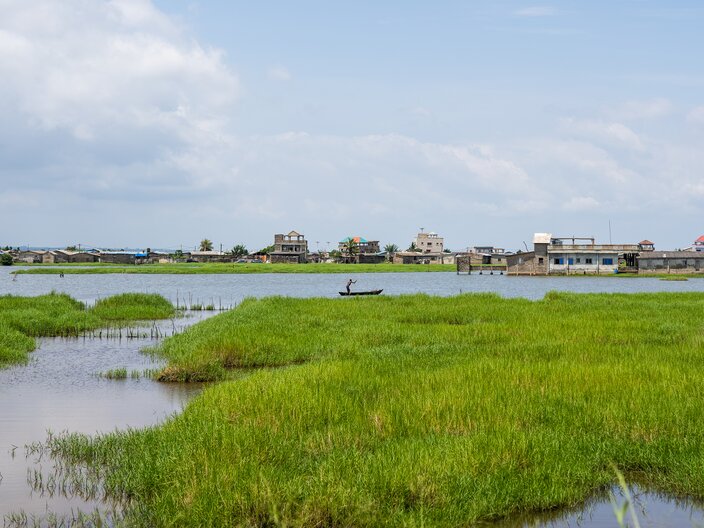On our route we encountered numerous sites that carry the UNESCO World Heritage label. Whenever possible, we tried to visit them, as our interest contributes to the preservation of these unique places. Tourism is one of the most important sources of income for these places and therefore provides essential livelihoods for the local people.
The pile village of Nzulezo is only accessible via a 15-minute boat ride. The first part of the canal was dug out especially for tourists so that they did not have too much of a hike. In general, a lot has been done to ensure that the tourists have as comfortable an experience as possible.
Arriving at the village, it was immediately clear to us why this is a site worth preserving. The uniqueness of the way of life is unmistakable. However, we observed a certain weariness on behalf of the inhabitants towards the tourists, no doubt due to the large number of daily visitors.
Ghana
Ghana is the first country on the western route where English is spoken and with the new language came new topics of conversation.
Our route first took us along the coast to a UNESCO World Heritage Site and then to "Cape3points", supposedly the southernmost spot of West Africa. The road was lined with rubber tree plantations, which looked like weeping trees to us - probably due to the rain.
After spending a few days on the beach again, getting to know the local population and going whale watching with the fishermen on their small fishing boat, our journey led us to Yayra Glover, Ghana's organic cacao entrepreneur with a close connection to Switzerland. Along with rubber, cacao is one of Ghana's main exports and is the main source of income for thousands of Ghanaians.
In the capital Accra, we were allowed to meet the new Swiss ambassador for a coffee and were guests on a reggae radio show, where we talked with Reggae Bombadier about Ghana, our journey and the world as a whole.
The last leg of our journey took us to the Volta region, home to the largest reservoir in the world and the Wli Falls, the highest waterfalls in West Africa. On this hike, our mountain experience came in very handy, as our guide marched up the mountain at a basic pace that would have been almost impossible for all but experienced mountain walkers. On this tour, we crossed the border to the neighbouring country of Togo for the first time, as the waterfalls lie directly on the border.
Pile village Nzulezo - UNESCO World Cultural Heritage Site
Culture, landscape and people
Ghana is a country with a distinctive vegetation. Due to the regular and abundant rainfall, it is very green and has many different plant species. Cacao cultivation and the extraction of rubber are among the main economic drivers, along with fishing, and create employment for many people. The plantations, forests and their fruits therefore not only shape the everyday life of the local population, but also the image of Ghana that one gets when travelling through it.
Cape3points - southernmost point of West Africa
Many roads lead to Cape3points. We experienced this very clearly on our arrival. One road was impassable due to a missing bridge. Another was impassable due to the high water level of a river, and the third turned us into a semi-professional towing company. The rain of the past days had damaged the road so much that the local population regularly got stuck with their cars and other vehicles. Dötnius brilliantly mastered the challenges set before him and pulled vehicle after vehicle up the muddy slopes.
Arriving in Cape3points, we found beautiful sandy beaches, cozy lodges that provided us with unexpected luxury and we enjoyed meeting a very hospitable local population. The perfect place to relax for a few days.
Whale watching on a fishing boat
In the Gulf of Guinea, there are still vast shoals of large fish and even whale. However, there is no organised whale watching tourism on large ships. The local fishermen invited us to go out on their fishing boat to the open sea and, with a bit of luck, to see whales. No sooner said than done, and after a little seasickness on the pitching and heaving fishing boat, one of these extraordinary animals showed itself to us. Totally fascinated by the beauty and size of this sea dweller, the nausea due to the rolling was forgotten for a moment. The memory of this experience is unlikely to be forgotten.
Clothing Market in Accra - Fast Fashion Challenge
When clothes are discarded in Western countries, they usually find their way into recycling bins – however that is but the beginning of their journey. Meanwhile we feel virtuous and that we are helping the poorer people of the world with our noble donations – how wrong we are! In fact, our good intentions have turned into a big global business. Sorted and packed into large sacks, these are sold to market traders - mostly women, with a few exceptions - who in turn sell them on to the local population. What cannot be sold is either burnt or sold on to even poorer countries in the world. Hardly green or charitable!
Due to the increasing fast fashion production - faster, cheaper and of poorer quality - and the emerging second-hand lifestyles in the Western world, increasingly poorer and unsaleable goods end up on the markets of the third world.
We were able to talk to many market operators in Accra about this development. Both trends are increasingly depriving local people of their important source of income and making their lives much more difficult.
The last journey in an apple
In Christian-influenced Ghana, a culture of its own has developed when it comes to saying goodbye to relatives and friends at the end of their lives. The life of the deceased is celebrated over several days by the whole community. Most extraordinary, however, are the elaborate and unique coffins. They are true works of art and provide a link to the life of the deceased. The “suitcases” for the last journey of the deceased can be cars, tools, animals or, in the case of a fruit farmer, an apple. We visited probably the most famous coffin maker in Ghana and looked over the workers' shoulders at their extraordinary work.
Accra - pulsating capital
Ghana's capital Accra, situated by the sea, offers everything you would expect from a large West African city. Many people, many markets, most of which are grouped together by product - electronics market, clothing market, crafts market, food market, etc. -, and let’s not forget the wide range of restaurants and hotels. The sunrises over the sea are magical and, due to Ghana's geographical location, as the sun has always rises and not set over the sea.
Wli-Falls
In the east of Ghana lie the - once again – the largest and highest waterfalls in West Africa. During a hike of several hours to, over, through and along the two-tiered waterfall, you cross the border to Togo before which you can immerse yourself in the beautiful, green Ghanaian landscape. You will get wet on this hike. Even though they may not be the highest waterfalls - which is very difficult for us to assess, as all the falls we visited were very high - a trip to this beautiful place is worthwhile.


